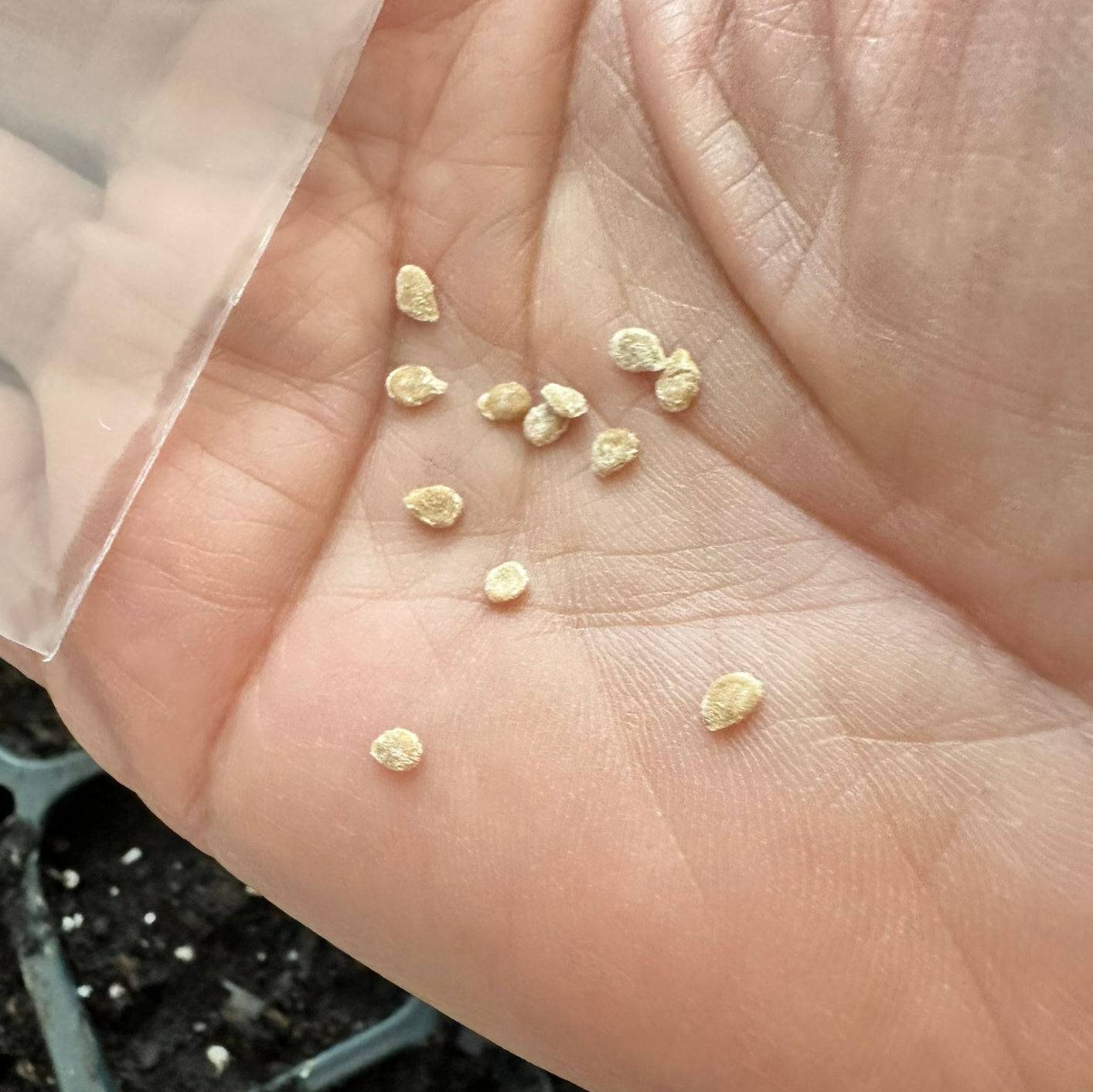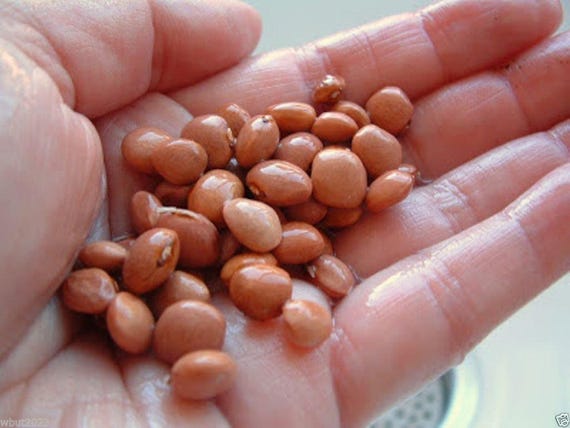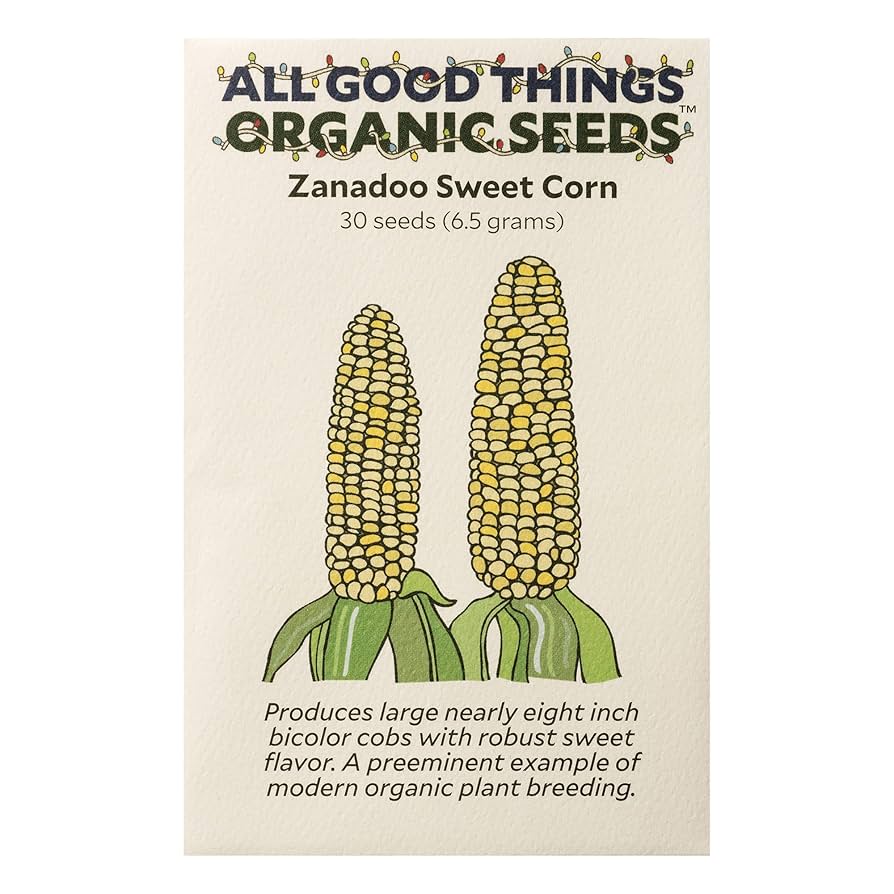
Beyond Packets: Ethically Sourcing Seeds for a Thriving Homestead
The aroma of ripe tomatoes still warm from the sun, the crunch of a freshly picked cucumber, the vibrant hues of heirloom peppers – these are the sensory rewards that make homesteading so deeply satisfying. But behind every bountiful harvest lies a tiny, often overlooked starting point: the seed. Think about it: that single seed carries within it the potential for life, sustenance, and connection to the earth.
For years, I blindly purchased seeds, focusing primarily on price and availability. I didn't give much thought to where they came from or the ethical implications of my choices. That changed when I started saving seeds from my favorite Brandywine Yellow tomato. I realized I was not just saving seeds, I was saving a part of the place itself, an adaptation of the tomato variety that thrived in my soil, in my microclimate.

This experience sparked a journey into the world of intentional seed sourcing – a world where sustainability, frugality, and ethical considerations intertwine to create a truly regenerative homestead. It's a journey that can seem daunting at first, but trust me, the rewards are well worth the effort.
In this post, we’ll delve into the often-hidden world of seed production and explore how you can make values-aligned choices when shopping for your homestead garden. We’ll cover the importance of ethical considerations, sustainable practices, frugal strategies, and provide actionable advice so you can start sowing seeds of sustainability today.
Understanding the Seed Industry Landscape
Before we dive into specific seed suppliers and strategies, it's important to understand the current state of the seed industry. For many years the trend has been toward larger and larger commercial seed companies who focus on a limited array of seed varieties.

The Rise of Commercial Seed Companies and Hybrid Seeds: Over the past century, the seed industry has undergone significant consolidation, with a handful of large corporations now controlling a large percentage of the global seed market. With this, there has been an increase in the development and marketing of hybrid seeds. While hybrid seeds can offer advantages like increased yield and disease resistance, they also have a significant drawback: you can't reliably save seeds from them. This is because the offspring of hybrid plants will not be true to type, meaning they won't consistently produce the same characteristics as the parent plant. This has serious implications for homesteaders who want to save seeds and build resilience in their gardens.
The Impact of Seed Monopolies: Concerns about seed diversity and corporate control are valid. When a few companies control the majority of seed production, there is a risk of genetic erosion – a loss of valuable genetic traits that can make crops more resilient to changing environmental conditions. Moreover, the focus on profit can sometimes come at the expense of ethical labor practices and environmental sustainability.
Hybrid vs. Open-Pollinated vs. Heirloom: Understanding the difference between these three terms is crucial for making informed seed choices.
- Hybrid seeds (F1 hybrids): As mentioned above, these are created by crossing two different parent plants. They often offer specific traits but don't produce true-to-type seeds.
- Open-pollinated seeds: These seeds will produce plants that are true to type, meaning you can save the seeds and expect them to grow into plants with similar characteristics as the parent plant. This is key for seed saving and building a locally adapted seed stock.
- Heirloom seeds: These are open-pollinated varieties that have been passed down through generations, often with a rich history and unique characteristics. They are a treasure trove of genetic diversity and a connection to the past. Many are adapted to regional climates.
Ethical Concerns in Seed Production: Commercial seed production can raise ethical concerns, including the use of pesticides and herbicides, fair labor practices, and the impact on biodiversity. Choosing ethical seed sources means supporting companies that prioritize environmental stewardship and fair treatment of workers.
Ethical and Sustainable Seed Sourcing Practices
Choosing seeds can be an act of rebellion against corporate control and a powerful step towards creating a more sustainable and equitable food system.

Supporting Local Seed Producers: Buying from local farmers, seed savers, and small-scale seed companies keeps your money within your community and supports individuals who are passionate about preserving genetic diversity. Local seed producers are often more attuned to regional climates and can offer varieties that are well-suited to your specific growing conditions. Finding them is easier than you think. Check farmers' markets or look for online listings in your region.
Choosing Organic and Non-GMO Seeds: Opting for organic and non-GMO seeds is a simple way to avoid harmful chemicals and protect the genetic integrity of your crops. Organic seeds are grown without synthetic pesticides, herbicides, or fertilizers, which benefits both the environment and your health. Non-GMO seeds are not genetically modified, ensuring that you are growing crops that are as close to their natural state as possible.
Seed Saving as a Sustainable Practice: Saving your own seeds is the ultimate act of self-reliance and a cornerstone of sustainable homesteading. By saving seeds from your best-performing plants, you can develop varieties that are specifically adapted to your local climate and growing conditions. Plus, it's a rewarding way to connect with the natural world and become a more active participant in the food cycle.
Looking for Certifications: Certifications like "Certified Organic" or "Biodynamic" provide assurance that seed producers are adhering to specific standards for sustainable and ethical production. Look for these certifications when choosing seed suppliers.
Regenerative Agriculture Focused Seed Companies: Seek out seed companies that are committed to regenerative agriculture practices. These practices focus on building soil health, increasing biodiversity, and sequestering carbon, ultimately creating a more resilient and sustainable food system.
Spotlight on Recommended Seed Suppliers
Finding ethical and sustainable seed suppliers can feel like a treasure hunt, but the reward is well worth the effort. Here are a few of my favorite companies that prioritize sustainability, ethical practices, and high-quality seeds:
- Seed Savers Exchange (Online): A non-profit organization dedicated to preserving heirloom seed varieties. They offer a wide selection of open-pollinated and heirloom seeds, and they actively support seed saving initiatives. Pros: Wide selection, mission-driven. Cons: Can be slightly pricier than some commercial suppliers.
- High Mowing Organic Seeds (Online): Specializes in certified organic seeds. They offer a great selection of vegetable, herb, and flower seeds, and they are committed to supporting organic agriculture. Pros: Excellent germination rates, high-quality organic seeds. Cons: Focus is on organic production, may not have as many heirloom varieties as other suppliers.
- Adaptive Seeds (Online): This small seed company focuses on regionally adapted varieties for the Pacific Northwest. They offer a unique selection of open-pollinated and heirloom seeds, and they are committed to preserving genetic diversity. They focus on varieties that grow best in shorter growing seasons, and varieties that are drought-resistant. Pros: Regionally adapted seeds, commitment to genetic diversity. Cons: Smaller selection than larger companies.
![montage of seed packets from different small seed companies laid out next to gardening tools.]
These are just a few examples, and there are many other excellent seed suppliers out there. Do your research, read reviews, and choose companies that align with your values.
Frugal Seed Strategies for the Homestead
Shopping with intention doesn't mean breaking the bank! There are plenty of ways to save money on seeds without sacrificing quality or ethics.
Seed Saving is the Ultimate Frugal Strategy: The most cost-effective way to source seeds is to save them yourself. Start with easy-to-save crops like tomatoes, peppers, beans, and peas. Learn the basics of seed saving, including proper harvesting, drying, and storage techniques.
Seed Swaps and Community Seed Libraries: Participate in local seed swaps and community seed libraries to share seeds and connect with other homesteaders. This is a great way to expand your seed collection without spending money.
Starting Seeds Indoors vs. Direct Sowing: Starting seeds indoors allows you to get a head start on the growing season, but it also requires additional resources like seed starting trays, grow lights, and potting mix. Direct sowing is a more economical option for crops that don't need a head start, such as beans, peas, and carrots.
Optimizing Seed Germination and Plant Health: Ensuring high germination rates and healthy plant growth will minimize seed waste and maximize your yields. Use high-quality soil, provide adequate moisture and sunlight, and protect your plants from pests and diseases.
Extend the Life of Leftover Seed: Many seeds can remain viable for several years if stored properly. Keep leftover seeds in a cool, dry, and dark place. Store them in airtight containers and consider adding a desiccant packet to absorb moisture.
Addressing Common Challenges & Concerns
Sourcing ethical and sustainable seeds can present some challenges, but don't let that deter you.
Difficulty Finding Reliable Local Seed Sources: If you're struggling to find local seed sources, start by searching online directories, attending farmers' markets, and networking with other gardeners and homesteaders.
Concerns about Seed Viability and Disease: To ensure seed viability, test your seeds before planting by placing a few seeds between damp paper towels and monitoring their germination rate. To prevent disease outbreaks, choose disease-resistant varieties and practice good sanitation in your garden.
Challenges with Seed Saving for Beginners: Seed saving can seem daunting at first, but it doesn't have to be complicated. Start with easy-to-save crops and gradually expand your repertoire.
Dealing with Unexpected Seed Shortages: If you experience an unexpected seed shortage, consider reaching out to local seed libraries or seed swaps. You can also adapt your planting plans by choosing alternative crops that are readily available.
Questioning GMO contamination concerns: To reduce risk, purchase from reputable sources, look for certified organic seeds, and prioritize open-pollinated varieties that can be saved and adapted to your own growing conditions over time.
Cultivating a Seed-Conscious Homestead
By making conscious choices about where you source your seeds, you're not just growing food – you're cultivating a more sustainable, ethical, and resilient homestead. You're supporting practices that benefit the environment, your community, and future generations. Every seed holds the potential for a more beautiful and abundant world.

I still remember the thrill of harvesting my first Brandywine Yellow tomato after saving its seeds the previous year. The fruit was even more delicious knowing that it was a direct result of my efforts to connect with the land and preserve a piece of its unique character. This experience solidified my commitment to ethical seed sourcing and inspired me to share my knowledge with others. What started as a quest for self-sufficiency has become a passion for building a more sustainable and equitable food system, one seed at a time.
What are your favorite seed suppliers? Share your recommendations in the comments below!